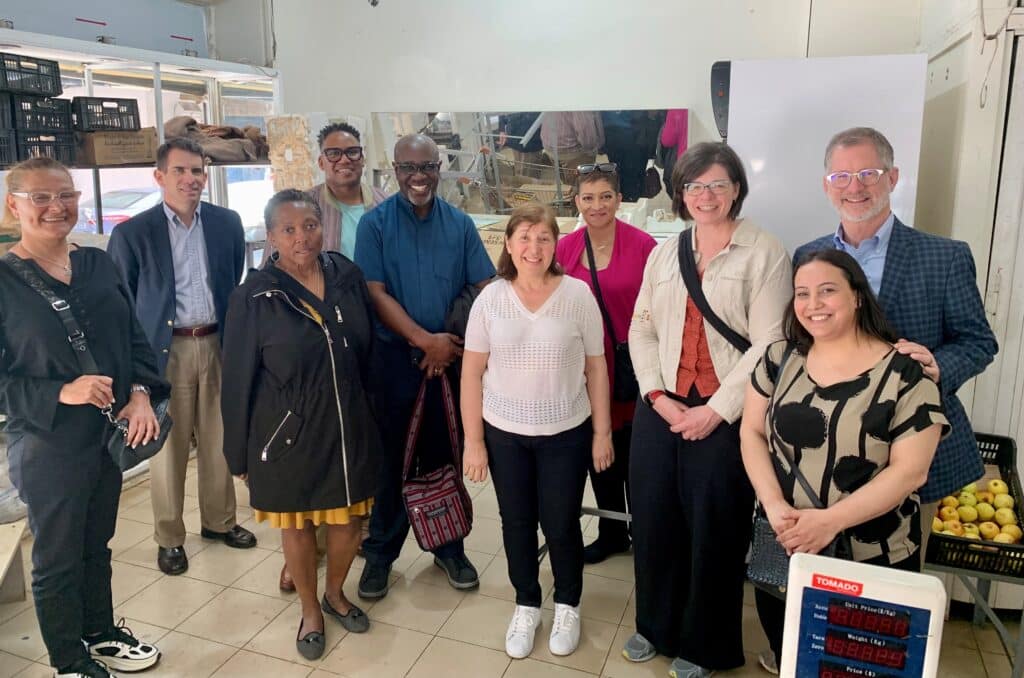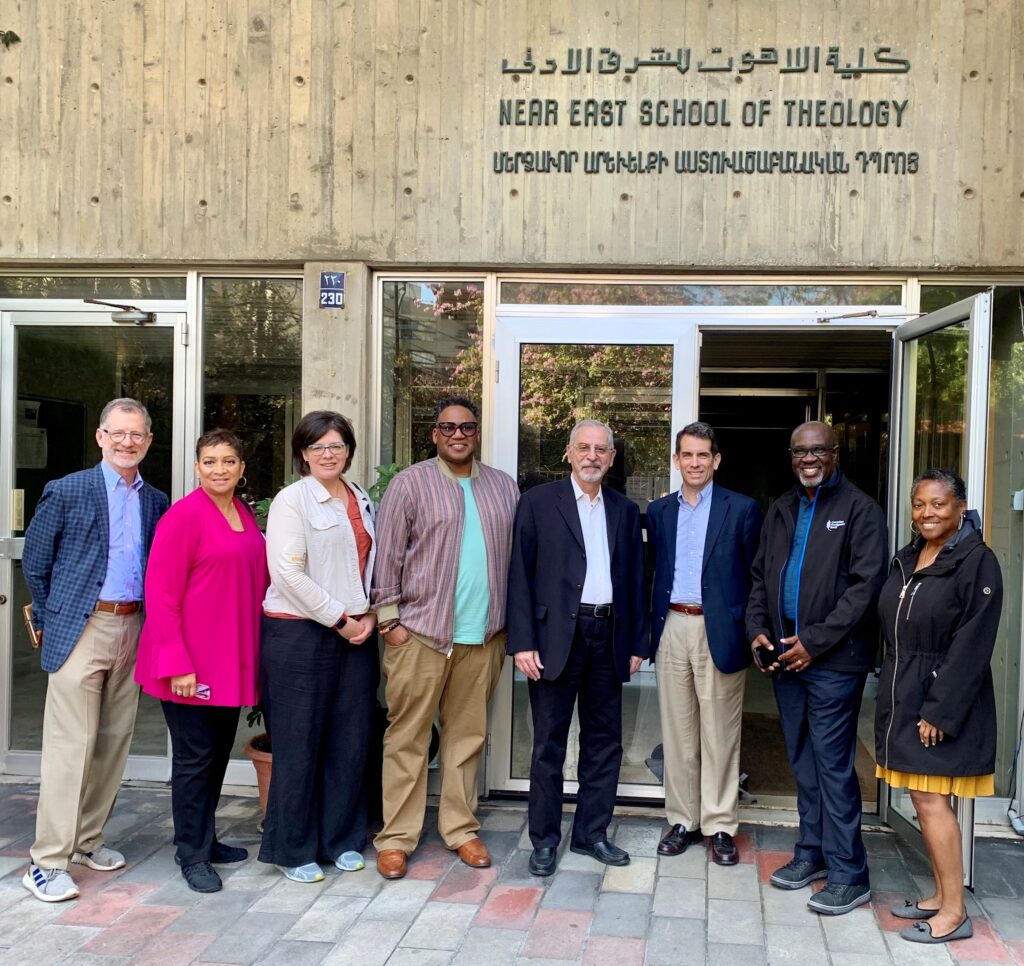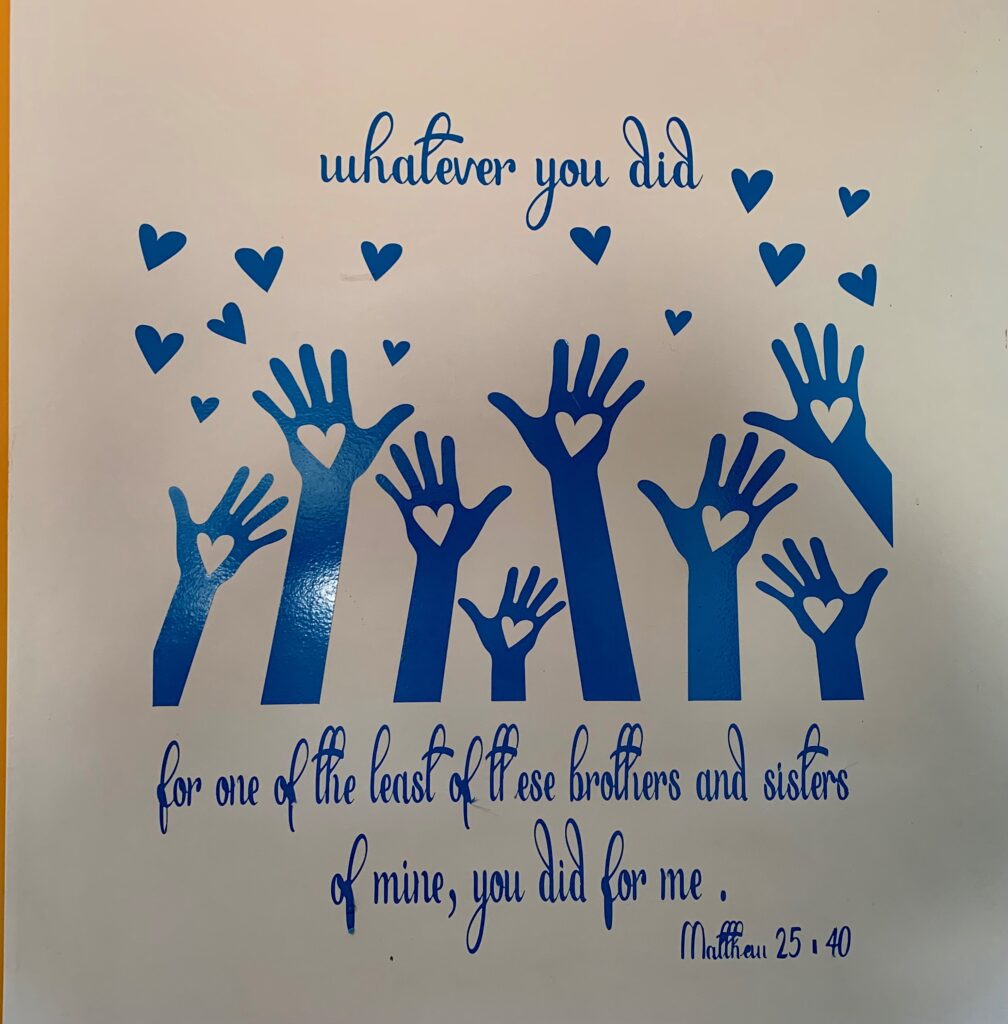“They Listened to Us”
Middle East Ecumenical Delegation Day 3, April 21, 2023
Written by Rev. Dr. Jennifer Janzen-Ball

“They didn’t come as superiors; they came and asked us what we needed, and they listened to us. They gave each of us [business owners] according to what we needed.”
These words from a woman who owns a small restaurant with her husband in an area of Beirut affected by the explosion at the port on August 4, 2020, tugged at my heart and called to mind the early Christian community’s commitment to sharing their resources for the common good (Acts 4: 32-35).
We visited the Middle East Council of Churches (MECC) Diakonia program and staff at their dispensary and medical clinic and then had a chance to meet with some of the business owners that MECC helped after the explosion. The explosion ripped apart buildings and destroyed the equipment and supplies of local businesses. Priority was given to those who have had a business in the area for a number of years and are the sole support for themselves and their families. Some of the local business owners have been in the area for 35 years or more. Each person we met with was incredibly grateful not only for the support of the MECC team but also for the way in which that support was provided: by listening to the business owners.
This story is not unique: our partners are on the ground, living with those they are helping, so they know the contexts, dynamics, and relationships. And our partners take seriously the principle of asking the people themselves about their needs and their hopes. No program is developed without first having community input.

We also visited the Near East School of Theology (NEST) for a breakfast meeting with the president, Dr. George Sabra. While Friday was a holiday (happy Eid!), we were able to see the library and meet the staff who are engaged in a digitization project of the archives funded by the United Church of Christ. We saw how digitization works and viewed an original handwritten text, translating the Bible into Arabic from English.
NEST provides theological education for students from the region’s “evangelical family of churches,” which in the Middle East means Protestants. Classes are offered in-person and online; the student body is split about equally between those two formats.
The school also offers a unique opportunity for international students to study for 1-2 semesters in Beirut. Students learn about and live in an ecumenical (Protestant, Catholic, and Orthodox) school, within an interfaith setting in Lebanon itself (Muslim and Christian, primarily). International students who attend pay tuition, food, and accommodation (about $4500 total per semester). This study program is not only academic but offers the chance to connect with and learn from local faith communities.

NEST faces similar challenges to theological colleges in the US and Canada including declining funding and student numbers. NEST also faces an incredible challenge because of the economic situation in Lebanon. The Lebanese lira has decreased in value exponentially, particularly since June 2022. This has serious financial implications for staff and for NEST. However, NEST’s primary concern remains helping prepare students for ministry in this very challenging context: ministry that is attentive to the needs of the community, helps the community address those needs, and advocates for change.
